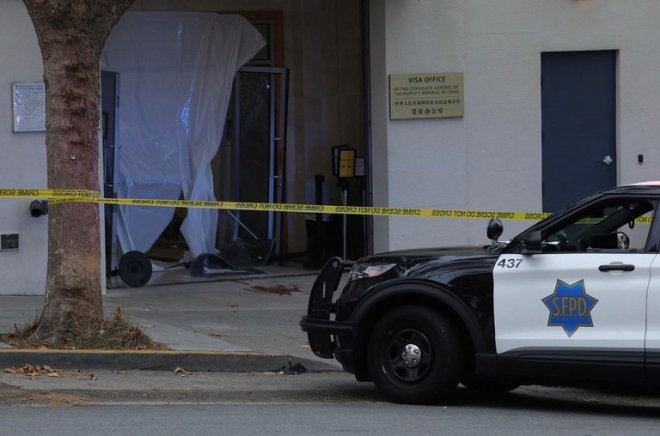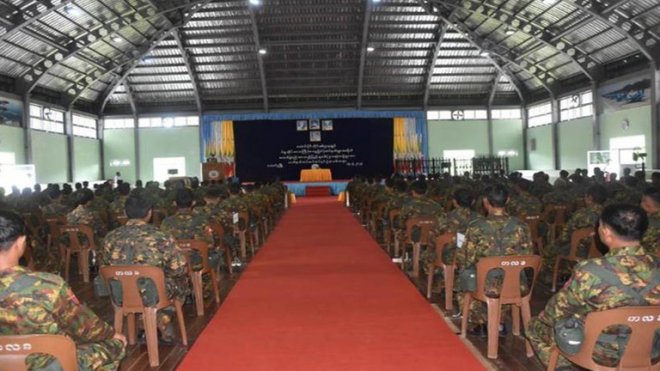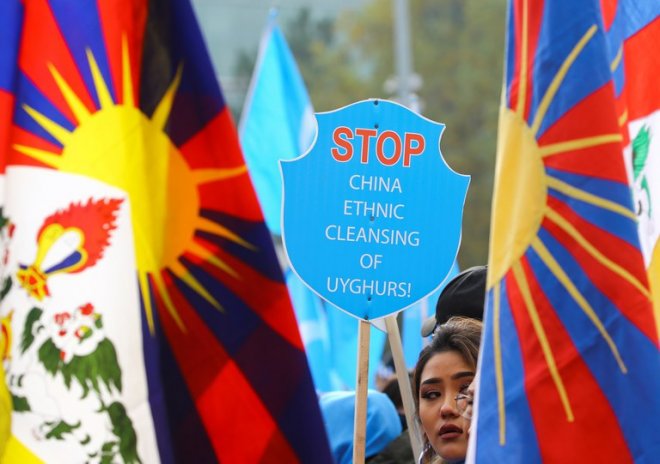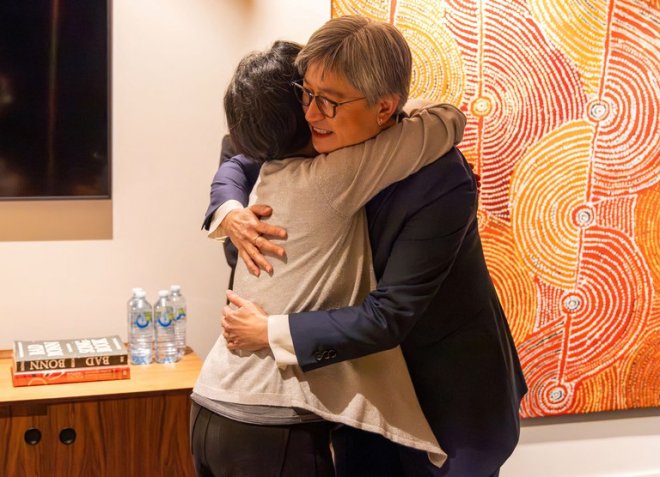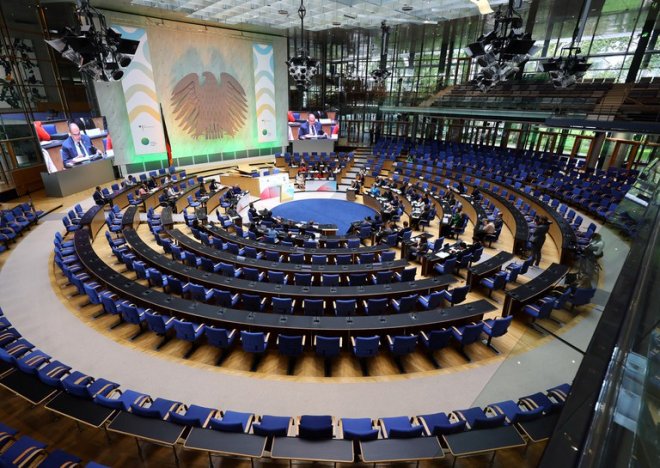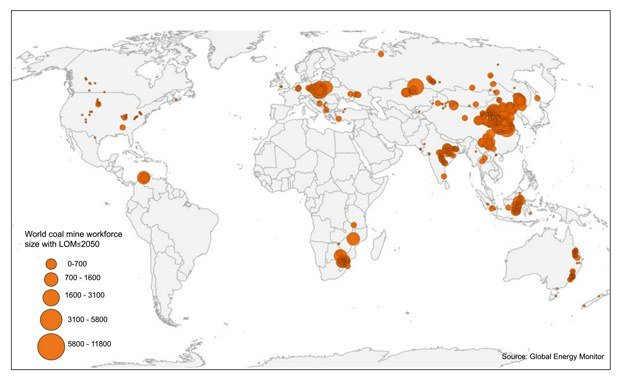Myanmar junta arrested more than 1,300 people for online criticism
Myanmar"s junta arrested more than 1,300 people over the past 20 months because they criticized it online, an independent data organization reported, highlighting the military rulers’ intolerance of dissent and the freedom of expression.
Many of those arrested were first “doxxed” by junta supporters who put private information about the critics on the internet, making it easier to identify them, residents said.
Data for Myanmar said on X, formerly Twitter, that on average, the junta detained 65 people each month and most of the detainees were Facebook users. “As of September 2023, a total of 1,316 people were detained for criticizing the junta and supporting the opposition forces on social media platforms,” it said.
That’s had a chilling effect. A resident of Yangon, who requested anonymity for security reasons, told RFA Burmese that she would not even dare to express her opinion on social media because there were arrests every day.
“Most were arrested for writing or sharing posts or commenting,” she said. “If there is news on the internet, I just look at it. Even if I have my own opinion, I don’t dare to make a comment. I dare not share [anything]. We have to suppress our feelings.
“There is no freedom at all,” she said.
The junta, which ousted the country’s democratically elected government on Feb. 1, 2021, started threatening ahead of the one-year anniversary that it would take action according to anti-terrorism and telecommunications laws if any person were to engage in incitement, propaganda or threats.
A graph from Data for Myanmar showed an uptick in arrests for online criticism in the months after the first anniversary of the coup. After a drop at the beginning of 2023, arrests picked up again at the second anniversary.
According to data, 323 of the arrests were in Yangon, the highest for any region. Mandalay was second with 284, and there were significant totals of arrests in Bago, Magway and Ayeyarwady regions.
Doxxing
The number of arrests has increased due to a doxxing campaign carried out by supporters of the military, according to a young IT technician, who requested anonymity for safety reasons.
“Technically, [the junta] didn’t do anything special. We have to say that it was mainly because of the informants,” he said.
“[The junta] doesn’t have control over Facebook, and they can’t monitor the people and their posts. The people who do digital surveillance have constantly provided information [about the people who criticize the government], he said. “They spread information [about them]. Then, [they] were arrested.”
Pro-junta channels on the Telegram social network frequently outed critics by publicly posting their photos and personal information. These included doxxing those who called for prayer for ousted and jailed leader Aung San Suu Kyi on her birthday, others who expressed their condolences for junta airstrikes on villages, and those who called for silent strikes on the anniversaries of the coup on social media platforms, the technician said.
RFA was not able to contact junta spokesperson Maj. Gen. Zaw Min Tun for comment as of Friday evening, but in May 2022, he told RFA that if any person advocated or supported the shadow National Unity Government – made up of former civilian leaders and junta opponents – or the Committee Representing Pyidaungsu Hluttaw which organized it, they would face legal action for violating anti-terrorism laws.
Kyaw Zaw, the spokesperson for the National Unity Government’s presidential office, said that arresting people just for writing on social media platforms violated a person’s basic right to freedom of expression.
“Ironically, they say that they take action [against people] under the anti-terrorism law because those people incited terrorist acts, but they are the only ones committing terrorism,” Kyaw Zaw said. “Those who write on social media are telling the truth and protesting the junta’s violence. [The junta] are threatening to take action under the terrorism law. That violates a basic human right, the right to freedom of speech.”
![]() Pro-junta Telegram channels published a photo of Burmese hip-hop artist Byu Har in handcuffs after he was arrested and allegedly beaten by military authorities on May 25, 2023. Credit: Myanmar Hard Talk/Telegram
Pro-junta Telegram channels published a photo of Burmese hip-hop artist Byu Har in handcuffs after he was arrested and allegedly beaten by military authorities on May 25, 2023. Credit: Myanmar Hard Talk/Telegram
Songwriter Naing Myanmar, the father of hip-hop singer Byu Har who was sentenced to 20 years in prison for criticizing the junta on social media, told RFA that the people of Myanmar will never have the same rights as everyone else in the world as long as the country is not free.
“[Freedom of expression] is the right that free people have. Our country does not have freedom yet,” he said. “No matter where you live in the world, it is very important for everyone to be free, regardless of skin color or religion.
Zaw Win, a human rights expert at the Southeast Asian rights organization Fortify Rights, told RFA that these rights violations needed to be stopped.
“The military is arresting and imprisoning people and this is not compatible with human rights,” he said. “[The arrests are] proof that there is no freedom of expression. [This] is not acceptable in any way.”
Myanmar is the second worst abuser of internet freedom in the world behind neighboring China according to the 2023 Freedom on the Net report released on Oct. 4 by U.S.-based Freedom House,
“The army and its informants used Telegram groups to share information on dissidents, allowing the authorities to identify, detain, and in some cases forcibly disappear them,” Freedom house said.
Translated by Htin Aung Kyaw. Edited by Eugene Whong and Malcolm Foster.
[圖擷取自網路,如有疑問請私訊]
Many of those arrested were first “doxxed” by junta supporters who put private information about the critics on the internet, making it easier to identify them, residents said.
Data for Myanmar said on X, formerly Twitter, that on average, the junta detained 65 people each month and most of the detainees were Facebook users. “As of September 2023, a total of 1,316 people were detained for criticizing the junta and supporting the opposition forces on social media platforms,” it said.
That’s had a chilling effect. A resident of Yangon, who requested anonymity for security reasons, told RFA Burmese that she would not even dare to express her opinion on social media because there were arrests every day.
“Most were arrested for writing or sharing posts or commenting,” she said. “If there is news on the internet, I just look at it. Even if I have my own opinion, I don’t dare to make a comment. I dare not share [anything]. We have to suppress our feelings.
“There is no freedom at all,” she said.
The junta, which ousted the country’s democratically elected government on Feb. 1, 2021, started threatening ahead of the one-year anniversary that it would take action according to anti-terrorism and telecommunications laws if any person were to engage in incitement, propaganda or threats.
A graph from Data for Myanmar showed an uptick in arrests for online criticism in the months after the first anniversary of the coup. After a drop at the beginning of 2023, arrests picked up again at the second anniversary.
According to data, 323 of the arrests were in Yangon, the highest for any region. Mandalay was second with 284, and there were significant totals of arrests in Bago, Magway and Ayeyarwady regions.
Doxxing
The number of arrests has increased due to a doxxing campaign carried out by supporters of the military, according to a young IT technician, who requested anonymity for safety reasons.
“Technically, [the junta] didn’t do anything special. We have to say that it was mainly because of the informants,” he said.
“[The junta] doesn’t have control over Facebook, and they can’t monitor the people and their posts. The people who do digital surveillance have constantly provided information [about the people who criticize the government], he said. “They spread information [about them]. Then, [they] were arrested.”
Pro-junta channels on the Telegram social network frequently outed critics by publicly posting their photos and personal information. These included doxxing those who called for prayer for ousted and jailed leader Aung San Suu Kyi on her birthday, others who expressed their condolences for junta airstrikes on villages, and those who called for silent strikes on the anniversaries of the coup on social media platforms, the technician said.
RFA was not able to contact junta spokesperson Maj. Gen. Zaw Min Tun for comment as of Friday evening, but in May 2022, he told RFA that if any person advocated or supported the shadow National Unity Government – made up of former civilian leaders and junta opponents – or the Committee Representing Pyidaungsu Hluttaw which organized it, they would face legal action for violating anti-terrorism laws.
Kyaw Zaw, the spokesperson for the National Unity Government’s presidential office, said that arresting people just for writing on social media platforms violated a person’s basic right to freedom of expression.
“Ironically, they say that they take action [against people] under the anti-terrorism law because those people incited terrorist acts, but they are the only ones committing terrorism,” Kyaw Zaw said. “Those who write on social media are telling the truth and protesting the junta’s violence. [The junta] are threatening to take action under the terrorism law. That violates a basic human right, the right to freedom of speech.”
 Pro-junta Telegram channels published a photo of Burmese hip-hop artist Byu Har in handcuffs after he was arrested and allegedly beaten by military authorities on May 25, 2023. Credit: Myanmar Hard Talk/Telegram
Pro-junta Telegram channels published a photo of Burmese hip-hop artist Byu Har in handcuffs after he was arrested and allegedly beaten by military authorities on May 25, 2023. Credit: Myanmar Hard Talk/TelegramSongwriter Naing Myanmar, the father of hip-hop singer Byu Har who was sentenced to 20 years in prison for criticizing the junta on social media, told RFA that the people of Myanmar will never have the same rights as everyone else in the world as long as the country is not free.
“[Freedom of expression] is the right that free people have. Our country does not have freedom yet,” he said. “No matter where you live in the world, it is very important for everyone to be free, regardless of skin color or religion.
Zaw Win, a human rights expert at the Southeast Asian rights organization Fortify Rights, told RFA that these rights violations needed to be stopped.
“The military is arresting and imprisoning people and this is not compatible with human rights,” he said. “[The arrests are] proof that there is no freedom of expression. [This] is not acceptable in any way.”
Myanmar is the second worst abuser of internet freedom in the world behind neighboring China according to the 2023 Freedom on the Net report released on Oct. 4 by U.S.-based Freedom House,
“The army and its informants used Telegram groups to share information on dissidents, allowing the authorities to identify, detain, and in some cases forcibly disappear them,” Freedom house said.
Translated by Htin Aung Kyaw. Edited by Eugene Whong and Malcolm Foster.
[圖擷取自網路,如有疑問請私訊]
|
本篇 |
不想錯過? 請追蹤FB專頁! |
| 喜歡這篇嗎?快分享吧! |
相關文章
AsianNewsCast









